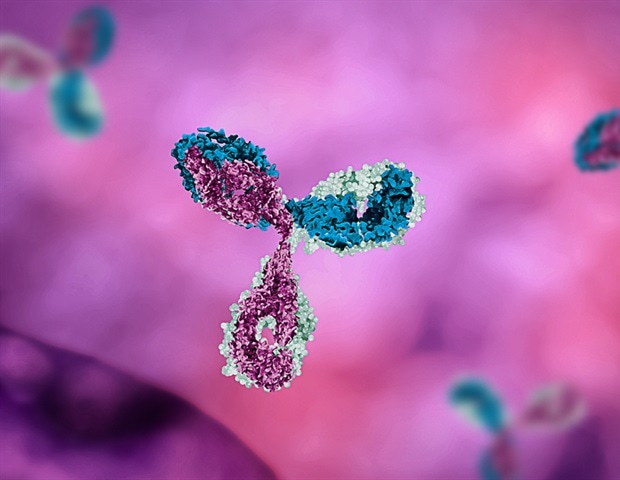
[ad_1]

It has been 4 years because the begin of the COVID-19 pandemic. SARS-CoV-2 has but to be eradicated and new variants are repeatedly rising. Regardless of the in depth immunization packages, breakthrough infections (an infection after vaccination) by new variants are widespread. New analysis means that human immune responses are additionally altering with a purpose to fight the endless emergence of latest SARS-CoV-2 variants. Particularly, it has been found the immune system that encountered breakthrough an infection by the Omicron variant acquires enhanced immunity in opposition to future variations of the Omicron.
A crew of South Korean scientists led by Professor Shin Eui-Cheol of the Korea Virus Analysis Institute Heart for Viral Immunology throughout the Institute for Fundamental Science (IBS) introduced that the reminiscence T cells that kind throughout the Omicron breakthrough an infection reply to subsequent strains of the virus.
Rising in late 2021, the SARS-CoV-2 Omicron variant had drastically elevated transmissibility compared to its predecessors, which shortly allowed it to turn out to be the dominant pressure in 2022. New strains of Omicron have saved rising ever since then. Beginning with BA.1 and BA2, BA.4/BA.5, BQ.1, XBB strains, and extra just lately JN.1 strains had been among the many new strains of the Omicron variant. This has led to widespread breakthrough an infection regardless of vaccination.
After changing into contaminated or vaccinated, the physique creates neutralizing antibodies and reminiscence T cells in opposition to the virus. The neutralizing antibody serves to forestall host cells from being contaminated by the virus. Whereas reminiscence T cells can’t stop the an infection, they’ll shortly search and destroy contaminated cells, stopping the viral an infection from progressing right into a extreme illness.
The analysis crew’s aim was to seek out out the modifications that happen in our physique’s immune system after affected by post-vaccination breakthrough an infection. As a way to reply that query, they targeted on the reminiscence T cells that fashioned after the Omicron an infection. The earlier research on the Omicron variant have largely targeted on vaccine efficacy or neutralizing antibodies, and the analysis associated to reminiscence T cells has been comparatively missing.
The analysis crew chosen sufferers who suffered then recovered from BA.2 Omicron breakthrough an infection in early 2022 as topics and carried out research on their reminiscence T cells, particularly of their skill to answer varied Omicron variants akin to BA.2, BA.4/BA/5, and others. So as to take action, immune cells had been separated from the peripheral blood of the themes, and the reminiscence T cells’ cytokine manufacturing and anti-viral actions in response to numerous spike proteins from completely different variants had been measured.
The outcomes confirmed that the reminiscence T cells from these sufferers confirmed heightened response in opposition to not solely the BA.2 pressure however the later BA.4 and BA.5 strains of Omicron as properly. By affected by breakthrough an infection, these sufferers’ immune system was strengthened to fight future strains of the identical virus. The analysis crew additionally found the particular a part of the spike protein which is the first reason for the noticed enhancement within the reminiscence T cells. These outcomes present that when an individual undergoes breakthrough an infection by the Omicron an infection, it’s unlikely for them to ever endure extreme COVID-19 signs from the longer term rising variants.
Analysis Fellow Jung Min Kyung who led this analysis acknowledged, “This discovering offers us new views within the new period of COVID endemic,” including, “It may be understood that in response to fixed emergence of latest virus variants, our our bodies have additionally tailored to fight the longer term strains of the virus.”
This new discovering will also be utilized to vaccine improvement. By trying to find widespread options among the many present dominant pressure and rising new strains of viruses, there could also be increased possibilities to induce reminiscence T cell defenses in opposition to the following variants.”
Director Shin Eui-Cheol of the Heart for Viral Immunology
This analysis has been carried out in collaboration with colleagues from Yonsei College Severance Hospital, Korea College Hospital, Sungkyunkwan College, and Samsung Medical Heart. It was printed in Science Immunology on January 12, 2024.
Supply:
Journal reference:
Haque, T. T., et al. (2024) TGFβ prevents IgE-mediated allergic illness by restraining T follicular helper 2 differentiation. Science Immunology. doi.org/10.1126/sciimmunol.adg8691.
[ad_2]